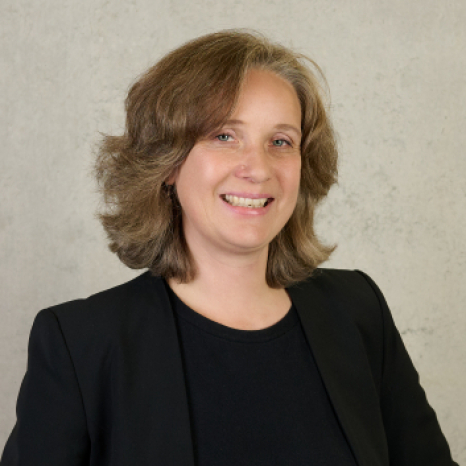Social work
At a glance
Faculty
Academic degree
Bachelor of Arts (B.A.)
Form of study
Full-time
Standard period of study
7 semesters (incl. practical semester), 210 ECTS
Place of study
Language of instruction
German
Start of studies
Winter semester (October 1)
Admission requirements
University entrance qualification, entrance qualification for universities of applied sciences, vocational qualification or foreign educational certificate
Orientation semester
Individual modules can be taken as part of an orientation semester
Semester abroad
Possible as a theoretical or practical semester
Studying with a practice partner
Accreditation
accredited by the Accreditation Council
Registration
from 02.05. – 30.09.
Profile of the degree program
Social work professionals support people in discovering their individual resources and potential and assist them in difficult life situations, such as addictive behavior, excessive demands with childcare, experiences of flight, debt or homelessness. They also work on social conditions that cause individual problems, but can also contribute to solving them. The degree program provides you with in-depth knowledge of social pedagogy/social work and related subjects. It includes a practical semester of study and specifically promotes your social skills and self-competence. Graduates of the Social Work degree course automatically receive state recognition as a social pedagogue with their degree certificate. This enables you to work in a wide range of social professions as well as in public authorities, offices and advice centers.
The combination of a theoretical foundation, a strong practical focus and the opportunity to set individual priorities makes studying at the university particularly attractive.
Employee of the Student Advisory Service
What we value
Well supported and networked right from the start
At the start of your studies and throughout the first semester, you will be supported in tutorials by students from higher semesters.
The course begins with predetermined foundation modules. As you progress, you choose your modules according to your own interests and can tailor them to a specific professional field. In seminars, projects and instruction/reflection groups, practical skills are practiced together and the connection to the theoretical foundations is clarified once again.
Additional qualification through an accompanying course of study
Unique in Bavaria is the opportunity to acquire an additional qualification in parallel to studying social work through an accompanying course of study. After the practical semester, students with above-average performance have the opportunity to acquire an additional certificate over 12 weekends as a supplement to their regular studies. Accompanying studies are possible in two subject areas:
- Management in social organizations
- Personal and experience-oriented consulting
Study internationally
Coburg University of Applied Sciences offers the opportunity to complete a study or practical semester abroad. To this end, Coburg University of applied sciences and arts maintains relationships with foreign partner universities. Further information is available from the university’s Study Abroad service.
Versatility through specialization options
The course offers a generalist education for all fields of social work, but with a unique variety of specialization options: Here, the modules can be put together in such a way that they perfectly match your own interests and development plans, as well as a constantly changing job market.
Possible specialization modules include:
- Social work with
- Children and young people
- Families
- People with mental illnesses
- People with addiction disorders
- People with disabilities
- homeless people
- Child protection work
- Clinical social work
- Intercultural educational work
- Experiential education
- Sexual education
- Biographical theater
- Community Building
- Campaigning and public relations
- International Social Work
Course content and schedule
The course comprises various modules that cover both theoretical and practical aspects of social work. These include basic modules, a practical semester and in-depth modules.
1st to 3rd semester
Contents of the 1st to 3rd semester include
- Introduction to social work
- History of the profession and theory
- Basic concepts of social work
- Case understanding and case work
- Social science perspectives (politics | sociology | social medicine)
- Human science perspectives (education | psychology | medicine)
- Culture, aesthetics, media
- Family, child and youth welfare law | Professional ethics
- Methodical action
- Conversation management and individual social support
- Social group work and community work
- Interdisciplinary electives (including foreign languages on request)
4th to 7th semester
4th semester Practical semester of 22 weeks – systematically guided and reflected upon Contents of the 5th to 7th semesters include
- Case seminar
- Empirical research methods
- Social and human science profiling
- Social Economy | Project Management | Human Resources Management
- Social law | Labor law | Criminal law
- Specialization modules 1-4
- Project workshop
- Specialized elective subjects
- Bachelor thesis
Practice during studies
Projects
You will be involved in various practical projects with regional partners from schools and social institutions. These will challenge you to apply your newly acquired skills directly and create contacts with the real world.
Practical semester
The course includes a practical semester in the fourth semester. During 22 weeks of full-time work in a social work institution – accompanied by an internship seminar – you will gain an important insight into everyday professional life and can test and expand the skills you have acquired up to that point under supervision. Practical training periods or professional activities in the social and/or educational field can be fully or partially credited to this practical semester after an equivalence check. Important information is summarized in the practical semester handbook. If you have any questions about the practical semester, please contact Ms. Verena Heer at the functional email address FS-Praxisreferat[at] hs-coburg.de.
Job & Career

The professional opportunities for social workers are diverse: they range from child and youth work, family support and clinical social work to experiential education and cultural work.
Employers include institutions of the major welfare organizations such as Caritas Arbeiterwohlfahrt or Diakonisches Werk, but also municipalities, government agencies, prisons, clinics and private associations.
Do another master's degree!
After successfully completing their studies, good graduates at Coburg University of Applied Sciences have the opportunity to continue their studies with a suitable Master’s degree course. The three-semester Master’s degree course in Social Work, Health Promotion or the part-time Master’s degree course in Clinical Social Work is offered directly after the Bachelor’s degree course. This is offered in cooperation with the Alice Salomon University of Applied Sciences, Berlin. You can also find an overview of which other Master’s degree programs you can combine with your Bachelor’s degree here.
Insights
You are currently viewing a placeholder content from YouTube. To access the actual content, click the button below. Please note that doing so will share data with third-party providers.
More InformationCurriculum and examination regulations
The study plan provides an overview of the structure of the degree program. The module handbook provides information on the content of the individual modules. The study and examination regulations form the legal basis of the degree program. If you have any questions about the content of the degree program, please contact the academic advisor Mathias Stübinger.
Study Ambassador
Study Ambassador
I’m Leon Kirchner and I’m a student ambassador for the Social Work degree program. As I study at Coburg University of applied sciences and arts, I can answer your questions directly. So if you want to know what the degree program is all about or what it’s like to live in Coburg, just send me an email: leon.kirchner@stud.hs-coburg.de.




